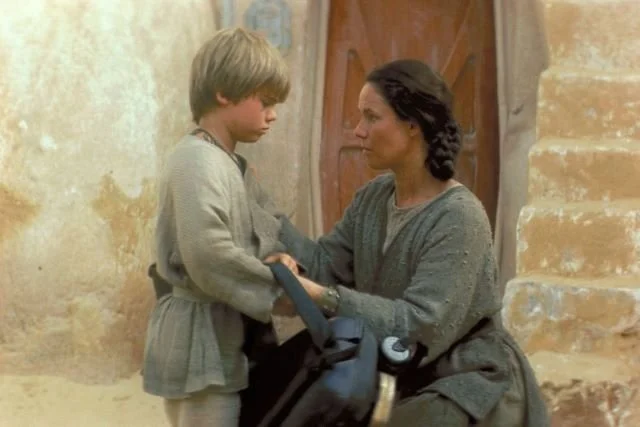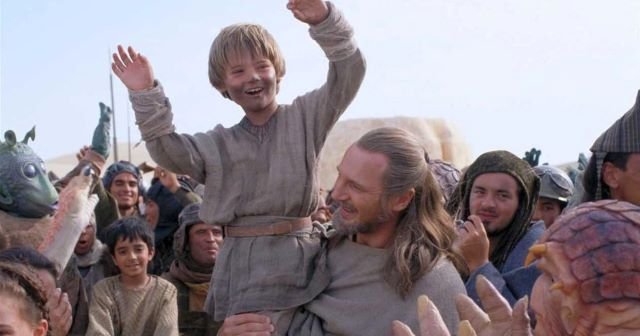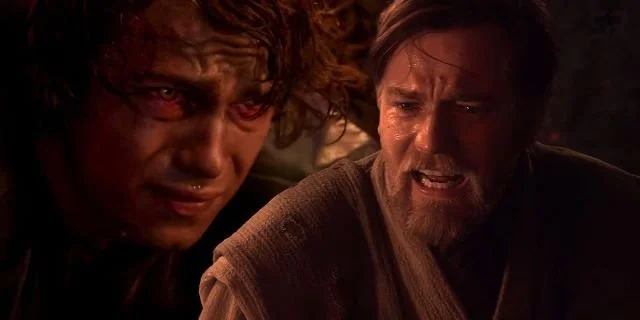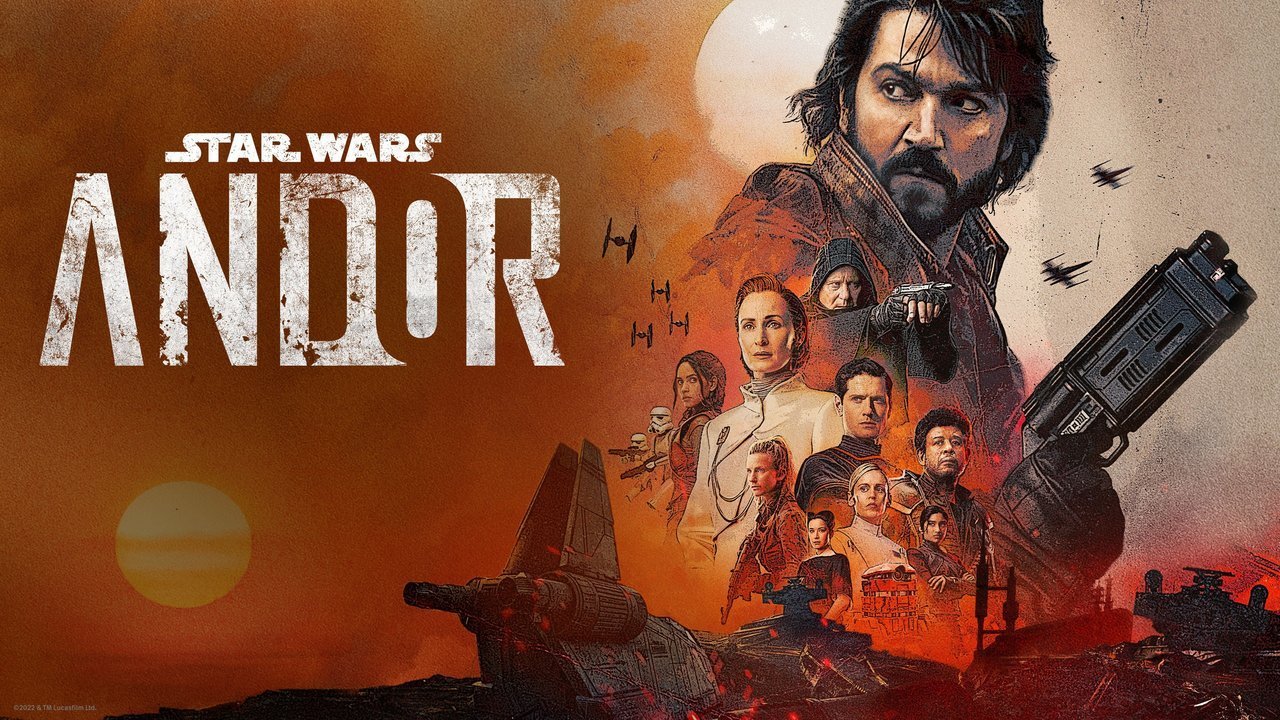The Devastating Rise And Fall Of Anakin Skywalker
Among the numerous stories that we've read and seen in the Star Wars universe, none of them resonate more strongly than the tragedy of Anakin Skywalker. The father of the hero we came to love when introduced in A New Hope, he is the namesake of the saga we all love.
When you take a closer look at his story, it tears your heart when you realize just how tragic the story is. He had endured much suffering and pain and ultimately had little to no agency in his own life. He then became a tool of machination for others.
RELATED:
We all know the story. Anakin is a boy born to a mother with no father on the sand-ridden planet of Tatooine. He is discovered by Qui-Gon Jinn and subsequently brought to be raised as a Jedi. Thought to be the Chosen One, according to a prophecy, he rises through the ranks of the Jedi Order, only to succumb to the temptations of the dark side and become the villain Darth Vader.
A deeper dive reveals the tragic series of events that precipitates that downfall.
To understand the fall of Anakin, we need to start back on Tatooine. Anakin is a slave, a dismal form of existence for anyone to experience, servile to the whims of others. Regardless of Watto being portrayed as a benevolent owner, he still owns another sentient being. Slavery is a despicable thing, and it is key to understanding Anakin's story. The impact of forced servitude on a being's psyche is incredibly harmful. Anakin's world is servitude, disdain, and poverty. Though we don't see it, it is likely he is beaten for any transgressions. It is a common characteristic of slave owners. Tatooine is a harsh planet. Add that to the harsh realities of being a slave and the impressionable nature of young minds, Anakin's view of the galaxy is not a favorable one. So, by the age he is discovered, his view of the galaxy is one of angst and being seen and treated as property that can be disposed of. It is no surprise that Anakin is prone to anger and rage from a young age. Anger at a galaxy for allowing such a system to exist.
He has hope, and that hope is a central part of his tragic downfall. The first sign of it comes when he meets Qui-Gon Jinn. Though it should have been a sign to him of the things to come, nine-year-old Anakin misses the subtle cue from Qui-Gon when the Jedi said he didn't come to Tatooine to free slaves. It is a line that fits in perfectly with Anakin's worldview. A reminder of the indifference of the galaxy-at-large to his plight.
Missing that hint, Anakin instead sees the hope that burns inside him. To Anakin, the Jedi represent the ability to right the wrongs he was subjected to during the first decade of his life. The Jedi are the hope he wanted, to free himself and his mother, Shmi. When he has to leave his mother behind, the promise of the power he would get from Jedi training drives him. This is evident in his promise to his mom to come back and free her, and later in his obsession to prevent Padmé Amidala's death. It's a worldview that many Jedi likely don't share.
Most Jedi are identified as infants, often taken from their families for the Order before they turn, which for a human is around the age of three, before they have solid memories. Anakin is about nine years old when he is found, fully aware and by all indications an incredibly smart nine-year-old. He has already lived a pretty dismal existence and has a mother that he knows and loves. It is part of the reason why Jedi look for children young, so they can't be distracted by those sentimentalities. It is also one of the major flaws of the Jedi Order, a flaw that only served to facilitate the downfall of Anakin.
Jedi are taught to shed all attachments, which is definitely easier for a child who is raised in that philosophical environment. Anakin is older than the ideal age, and his mother was his whole world. The grief that leaving her instills in him haunts him and manifests in the visions he has of her suffering in Attack of the Clones. By this time, Anakin is still a Padawan on his way to knighthood. As he is learning about the Jedi Code, he comes face to face with the limitations the order places on Jedi. Anakin knows the code, and we often see him struggle to adhere to its seemingly stringent proscriptions. He struggles because he knows a galactic reality that challenges that code, a galaxy full of loss, and loss he especially experiences a large share of. He yearns to return to his mother and free her, but that runs afoul of the Jedi proscription of forbidding attachment.
His pairing with Obi-Wan Kenobi as his teacher and his orthodox view of the code presents another challenge to Anakin's goals. It is no mystery that Qui-Gon was perhaps a little more philosophically open about the Jedi Code. We see that in his discussions with Obi-Wan about the Jedi Council, offering Obi-Wan some alternative perspectives on Jedi teachings. That's why the death of Qui-Gon, who was supposed to teach Anakin, is a particularly important turning point. Qui-Gon was directly exposed to Anakin's life on Tatooine. He knew the stakes, and with his approach to the Code, which at times brought him at odds with the Jedi Council, he was uniquely placed to guide the young Anakin and help him navigate the feelings he would have.
Obi-Wan's orthodoxy is why the air is rife with tension between him and Anakin. This pairing is to the detriment of Anakin, as his personality and philosophy conflict with that of Obi-Wan. While Obi-Wan sees Anakin as a brother, Anakin sees him as a father, and that is particularly important to Anakin's downfall. The conflicts between them serve as failures to Anakin. It frustrates him to disappoint the only father figure he has and fuels his anger. He can't live up to his father figure's ideals, and like any teenager or young adult, those ideals conflict with the image he has of himself.
The pattern of loss is a central theme in Anakin's story. After the death of Qui-Gon, just before the Clone Wars begin, Anakin has visions of his mother's death. Now equipped with the power of a Jedi, he feels capable of saving her life. But he's too late. It's his first real taste of loss, and the Jedi Code is not strong enough to stay his rage as he unleashes his pain and anguish on the Tusken Raiders that had captured her. The pain he feels reverberates through the Force, felt by Master Yoda all the way back on Coruscant.
Anakin is now faced with two conflicting realities of his life: the harshness of the galaxy he knew in his youth and what Jedi are really capable of. He doesn't really learn the lesson from his mother's passing, one that Master Yoda clarifies to him in Revenge of the Sith, that death is a natural part of life. Instead, he doubles down on his fantasy of the Jedi and vows to become the most powerful Jedi ever. He has just lost his mother, his caregiver, the woman who raised him alone on a backward wasteland. Anakin promised to free her, and he failed. He says he won't let it happen again, as he makes clear to Padmé in Revenge of the Sith.
Anakin acquires an apprentice of his own during the Clone Wars. It's an unusual move for the Order, but it's a time of war, and the Jedi, who had been dwindling in numbers by the start of the war, are suddenly thrust into the role of general for the clone troopers. So Padawan Skywalker is promoted to knighthood and then gets a Padawan of his own, Ahsoka Tano. They become like brother and sister over the course of the war, until Ahsoka is accused of crimes by the Republic, and the Jedi abandon her, forcing her to go rogue and prove her innocence.
Even though Anakin was in the difficult position of having to side with the Order or his apprentice, he always had faith in her. However, when the Jedi finally realize their mistake, Ahsoka leaves. Anakin and Ahsoka were never really able to reconcile before Order 66 was initiated. The shot of her walking away from him in The Clone Wars is gut-wrenching. This time, instead of someone dying on Anakin, something he swore to never let happen again, they chose, in his eyes, to leave him. It's hard to say which would feel worse, but it cuts Anakin deeply.
Then, we have to consider Padmé's impact on Anakin's life. As Anakin tells her, she is in his very soul. He has thought about her every day since they met on Tatooine. That's an enduring characteristic of Anakin that further enhances the tragic nature of his story. He is a deeply devoted and loving person. He cares immensely for the ones he loves. His mother. Padmé. Obi-Wan. Ahsoka. So imagine having that passionate, intense love and a natural desire to protect those you love because you can, you're a Jedi. Yet, everyone you have ever loved has been taken from or left you. Now, he has found someone, the someone we all search for, that one person we want to share our life with.
Anakin is smart. He thinks he can find a way for them to follow their heart and still be a Jedi. Then, just like with his mother, he has dreams of Padmé dying, this time in childbirth. Who can he turn to though? Padmé herself reminds him the Jedi won't allow it, just as Obi-Wan threatened him on the dropship when they were fighting on Geonosis. He can't turn to Obi-Wan or the Order. It's alienating and lonely. In those circumstances, some seek out someone they can trust, someone they can divulge their secrets to without facing repercussions.
Enter Supreme Chancellor Palpatine. By Revenge of the Sith, it is clear that he has groomed Anakin, acting as a confidante for the confused Jedi. He knows of his love of Padmé, his fear, his love for his mother, and his conflicts with the Jedi Code. It is also clear that he is manipulating Anakin, being the Sith Lord that he is. When Palpatine tells Anakin that there's a way to do what he has dreamed of, to stop what has haunted him his whole life, who in Anakin's position wouldn't latch on to that? He has endured loss after loss, and here he has someone who listens to him and has an answer to his prayers.
It is a temptation he can't resist, even though we see how tormented he is by his decision when he is waiting in the temple before leaving to stop Mace Windu from taking out Palpatine. He knows what he did, and he goes numb, staring as Mace's body vanishes into the Coruscant traffic. It is like watching part of someone's soul leave their body. We see more and more of it die with each swing of his lightsaber as he carries out Palpatine's will in the Jedi Temple and then on Mustafar.
The tears of pain that run from his eyes and the cries of anguish as he slices through the Separatist leadership sealed his fate. Anakin is driven by one thing now: learning from Palpatine in order to save Padmé. He has lost too much to care anymore, but he becomes so blind to it that he ends up being the very cause of the dreams he had. The final twist of the knife is Anakin's charred, limbless body desperately trying to climb up the slope away from the lava, screaming "I hate you" at Obi-Wan. Years of pain and loss and frustration finally let out at yet another person leaving him. And Obi-Wan does leave him, as Anakin ignites and fire engulfs his body.
That is the tragedy of Anakin's story. He is seen as nothing more than a tool to most of those around him. A means to an end and often left feeling discarded and ignored. To the Jedi, he is the Chosen One, someone most Jedi see as being their saving grace, the one to bring an end to the Sith. But their arrogance and ivory tower mentality blinded them to his tortured soul. To Palpatine, he is the means to bring down the Jedi Order once and for all and secure the galaxy for himself. He saw the tortured soul, but not as one to help and nurture, but as one instead to twist to his evil desires for power and fear.
Neither the Jedi nor Palpatine could be what Anakin desired most of all: people who believe in him and guide him to find a way to save the ones he loved from the harshness of the galaxy. He looks to them all for help and he ultimately ends up exactly where he feared he always would: alone, and the very thing he hates.
READ NEXT:
Source(s): Wookieepedia










